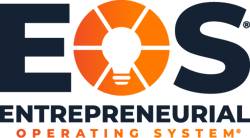The foundation to a healthy team = trust. The fabric of all organizations = teams. So, the more trusting your teams are, the healthier you will be as an organization.
I just did what Ms. Shultz taught you in your dreaded geometry class: if A = B and B = C, then A must equal C. It’s one of the tenets of sound logic. I apologize for any flashback trauma I may have caused.

I’m sure you’re aware that the true difference between great companies and mediocre ones is that they are healthy and not just “smart” — the old way of thinking. If I have to pick A) Healthy, or B) Smart, I would choose C) All the Above, with A) Healthy a close second.
I’m done with all my high school flashbacks, but stay with me as we talk about 3 ways you can become the great, healthy company your people deserve.
1. Be Open and Honest
Don’t do anonymous surveys if you want to build trust in your company.
I made this statement in a session a few weeks back and my point was made even more clear by the response I got: “Then how are we going to get people to give us their honest feedback?” I replied, “You don’t think your teams would be willing to give you their honest feedback if we don’t allow them to hide behind their anonymity?” She shook her head. “Doesn’t that sound like a problem we shouldn’t cover up with a survey?” I asked.
Wouldn’t it be great if we could all talk to our people about their delights and concerns directly? Sure, some people may feel uncomfortable giving direct feedback, but it’s worth tackling this head-on and getting our teams to a place of open and honest trust.
2. Practice Active Trust
Build a culture where you have active trust, and not just passive trust. Passive trust is where you say, “Yeah, I trust Tom. He gets his stuff done and if I had a flat tire, I know I could call him up to help me out.” Active trust is harder. This is where you trust Tom so much that you are willing to be 100 percent yourself with him and completely vulnerable. This type of trust is much tougher to achieve.
With passive trust, we unconsciously create this equation about the amount of time we have spent with someone and how they have acted during this time: Time x Acceptable Behavior = Trust. Instead, we need to get to the point with our team that on Day One, before we have even had a chance to get to know someone, we can completely and unequivocally trust them with exactly who we are and be nothing short of open and honest out of the gate—consistently.
3. Commit to Weekly Level 10 Meetings™
Probably one of the most understated ways EOS® companies build trust is by succeeding, failing, winning, struggling, and solving problems together as a team. This is what happens every week in your Level 10 Meeting.
I had a leadership team that was struggling with being healthy. They were a little squirrelly as they checked in at the beginning of a session, and I could tell that there was friction among some of the team members. It just felt different from past quarterlies. When we got to the point of fleshing out issues, a few people referenced getting back on track with Level 10 Meetings. Ah-ha! They had fallen off their weekly pulse as a team. They weren’t missing all of their Level 10s, but the priority and consistency wasn’t there.
When we got to IDSing, a number of the issues came back to the team not having a weekly Level 10 Meeting. The next quarter it became a priority again, and they did not miss one Level 10 Meeting as a team. Their next quarterly was light years better.
These are three big steps for your team to take in order to become more healthy. I promise the effort will be worth it, as healthy teams are more effective, solve more issues, get to the root of an issue better and faster, and get the results. Sound like something your company could benefit from?
Next Steps
- Download a copy of our free eBook, How to Lead World-Class Meetings.
- Unlock the EOS Toolbox to download a copy of the Level 10 Meeting Agenda.
- Download the Issues Solving Track™ from the EOS Toolbox to learn how to IDS™ (Identify, Discuss, and Solve) issues more effectively.




